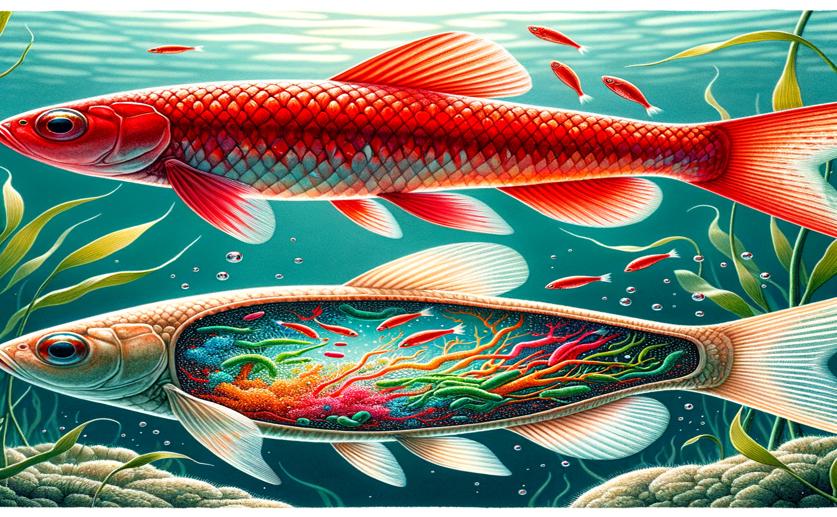
Gut Microbial Composition of Wild Red and Sand Shiners
Jenn Hoskins
23rd May, 2024

Image Source: Natural Science News, 2024
Key Findings
- The study examined the gut microbiomes of two small-bodied fish species, red shiner and sand shiner, from rivers in Nebraska, USA
- Both fish species had gut bacterial communities dominated by typical freshwater fish bacteria, distinct from the surrounding water
- Environmental factors like temperature, turbidity, and dissolved oxygen significantly influenced the gut bacterial communities in these fish
BiochemAnimal ScienceMarine Biology
References
Main Study
1) Gut Microbial Composition of Cyprinella lutrensis (Red Shiner) and Notropis stramineus (Sand Shiner): Insights from Wild Fish Populations
Published 22nd May, 2024
https://doi.org/10.1007/s00248-024-02386-z
Related Studies
2) Factors influencing the grass carp gut microbiome and its effect on metabolism.
3) Environmental and ecological factors that shape the gut bacterial communities of fish: a meta-analysis.



 14th May, 2024 | Jim Crocker
14th May, 2024 | Jim Crocker